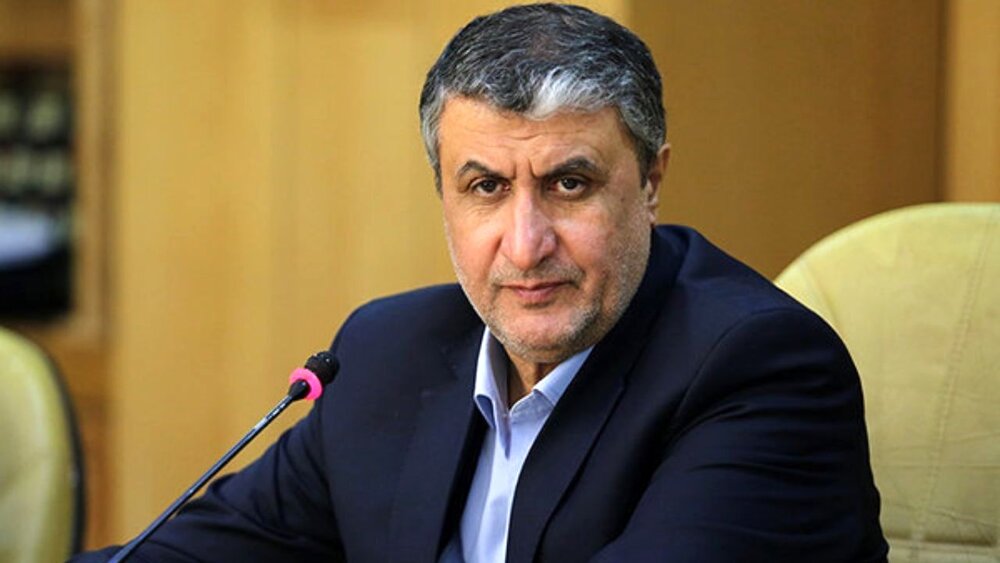Iran embarks on turning off all cameras beyond Safeguards agreement

TEHRAN – Chief of the Atomic Energy Organization of Iran (AEOI) announced on Thursday night that Iran has turned off a number of IAEA cameras which were monitoring Iran’s nuclear activities beyond the Safeguards agreement and plans to turn off the rest soon.
“… we ended the activities of a number of these cameras and we will do the rest tonight and tomorrow,” Mohammad Eslami told the national TV.
He put the number of such cameras at 17-18.
The cameras that have been removed or are being removed were installed voluntarily. Their activity fell outside the scope of the Safeguards agreement of the International Atomic Energy Agency.
Iran embarked on removing such cameras in response to a resolution by the IAEA Board of Governors against Iran late on Wednesday.
The anti-Iran resolution, proposed by the U.S. and the European trio (Germany, France and Britain), was approved by the IAEA’s 35-nation board with 30 votes in favor, two against and three abstentions.
Russia and China voted against the resolution and India, Libya and Pakistan abstained.
The resolution was drafted on the basis of a report by IAEA Director General Rafael Grossi in which it was claimed Iran had refused to provide answers to traces of uranium enrichment found at three undeclared sites. This is while Iran had provided answers to the IAEA about these alleged sites, which finally led to the conclusion of the 2015 nuclear agreement, officially called the Joint Comprehensive Plan of Action (JCPOA).
Questions about the alleged nuclear sites, which were referred to as possible military dimensions (PMD), were answered and the issue closed.
“You closed all these allegations and charges within the PMD…. And now you have come and say you want to return to the JCPOA. Okay, return to the JCPOA but why do you reopen the closed package which form the essence of the JCPOA?” Eslami asked.
Prior to the debate on Iran’s nuclear program at the IAEA board, Grossi had visited Tel Aviv for talks with Israeli officials, a move which put in serious question Grossi’s neutrality and professionalism by the Agency under his leadership.
Eslami went on to say that the IAEA, based on its articles 2 and 3, is tasked to transfer nuclear technology to NPT signatories for civilian uses but the reality is that the IAEA is “a pawn of the Zionists”.
It is widely believed that these alleged nuclear sites have been raised by Israel through bogus documents.
“It is regretful that an international institution is exploited in such a way by a fake regime and puts its credibility in question,” the AEOI chief lamented.
Israel, which has been launching an intensive campaign against Iran’s nuclear program for about two decades, has not signed the nuclear Non-Proliferation Treaty and according to the Stockholm International Peace Research Institute (SIPRI) has about 90 nuclear weapons. It also played a key role in provoking the Trump administration to quit the JCPOA, which was the product of 12 years of negotiations.
The nuclear chief went on to say that all the commitments made by Iran under the JCPOA was beyond the Safeguards agreement and were chiefly intended to create confidence about Tehran’s nuclear activities.
“Why has the Islamic Republic accepted to limit itself and be under more intensive surveillance and control by the Agency for a rather long term? It was just because it wanted to get rid of these accusations and build trust,” he explained.
However, Eslami added, this “good intention” which was shown in the negotiations and the JCPOA is not being considered at all by the IAEA, including its director Grossi.
There is “no will” by Grossi to become convinced of Iran’s answers and this shows that he is a “hostage” to Israelis and that he has adopted a “political” behavior toward Iran.
